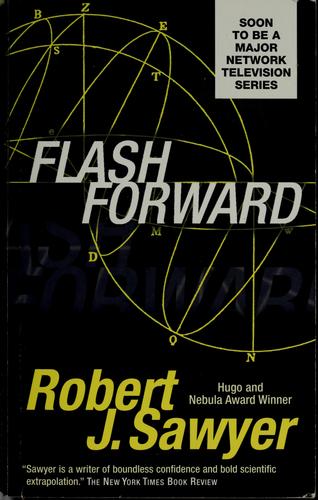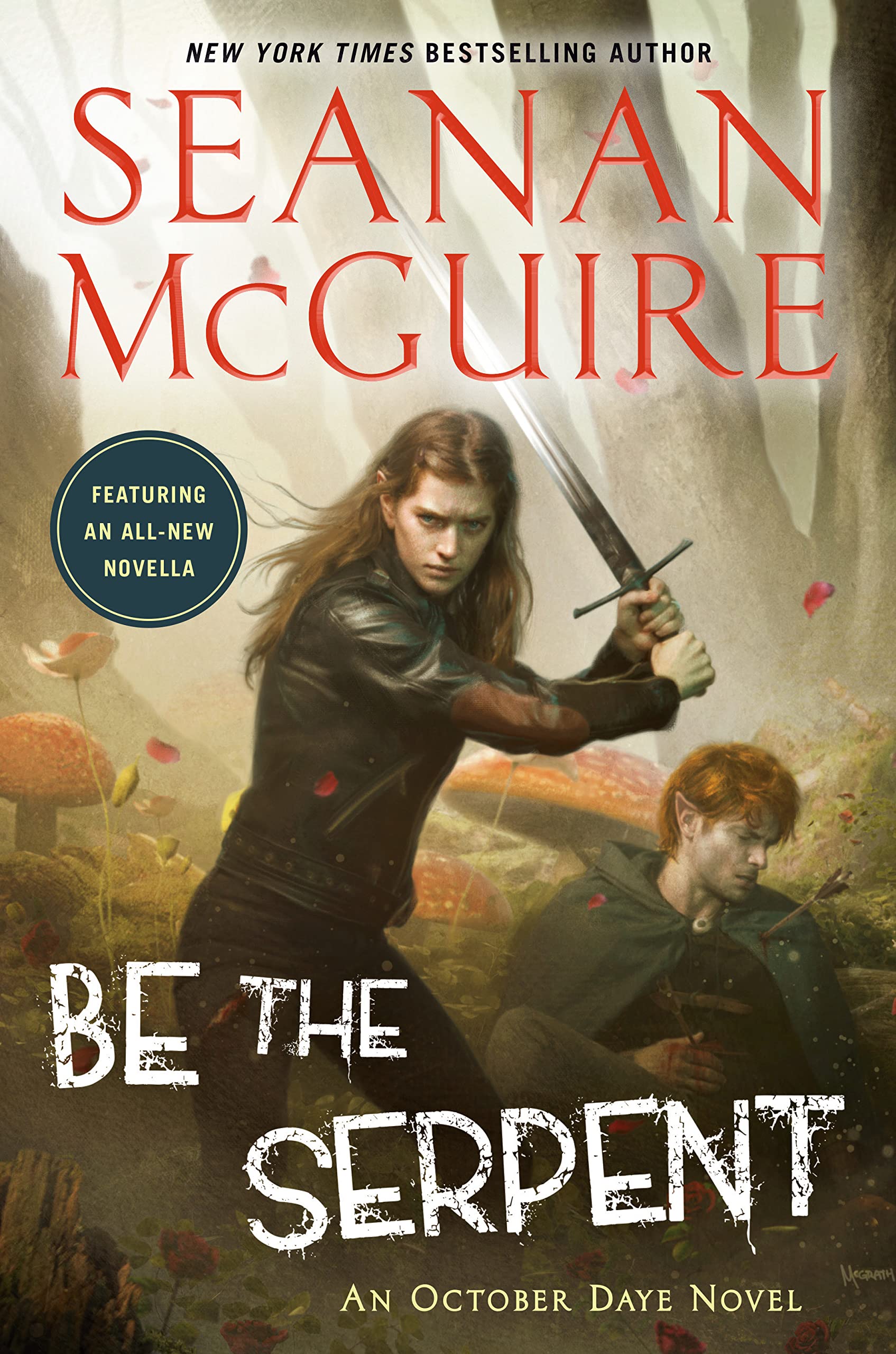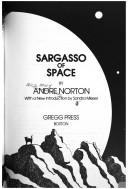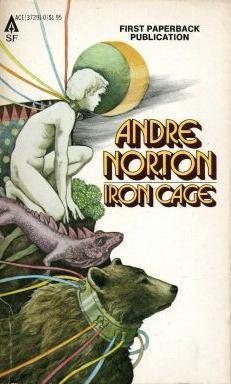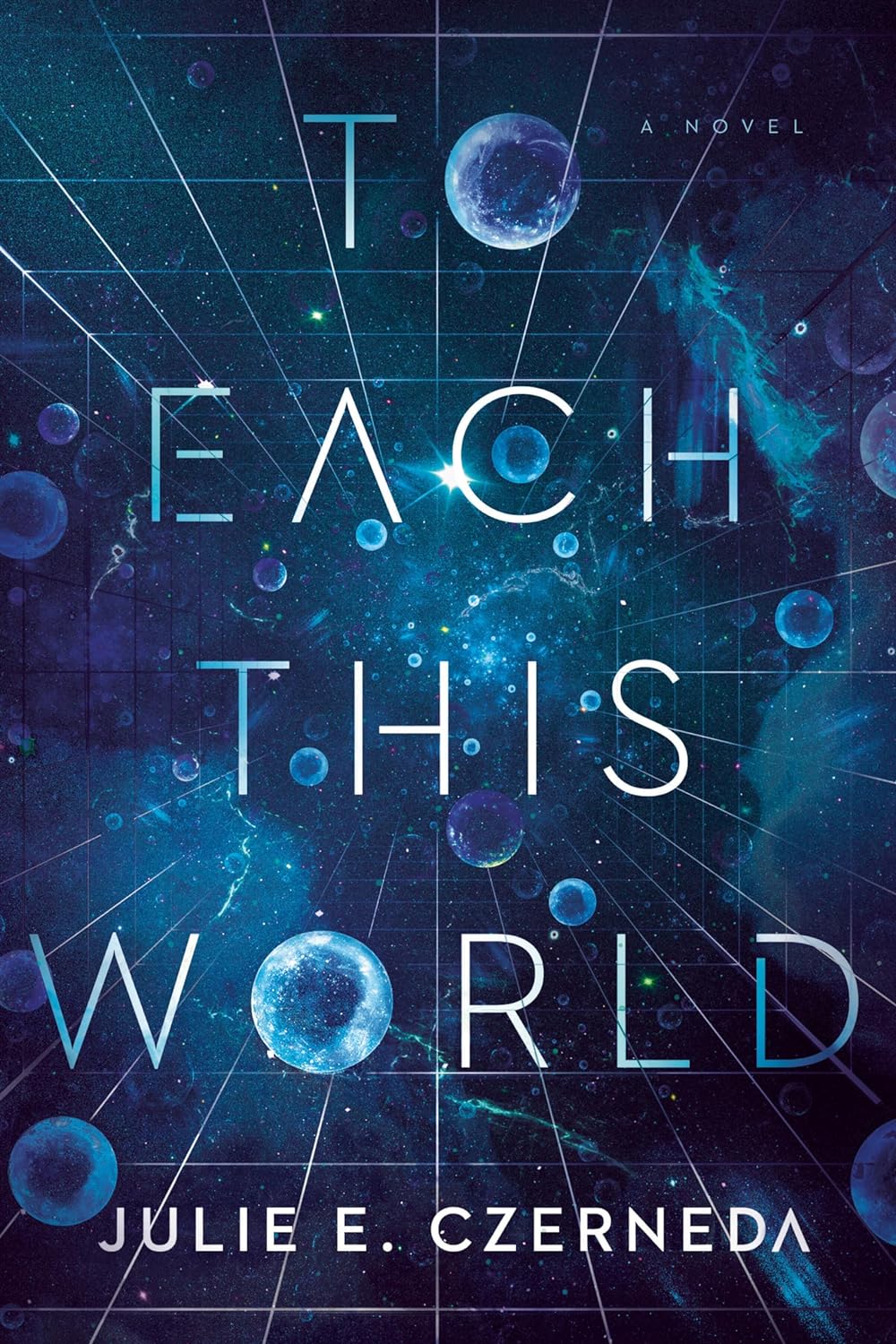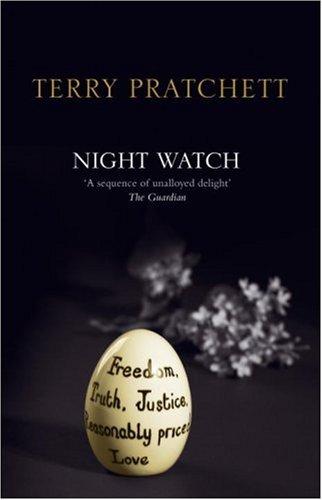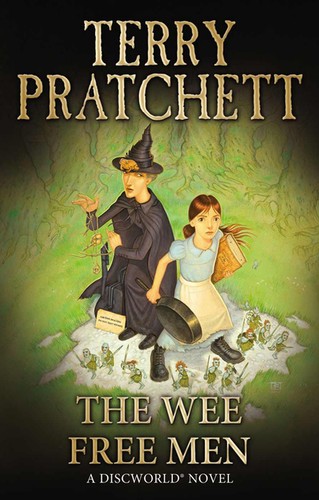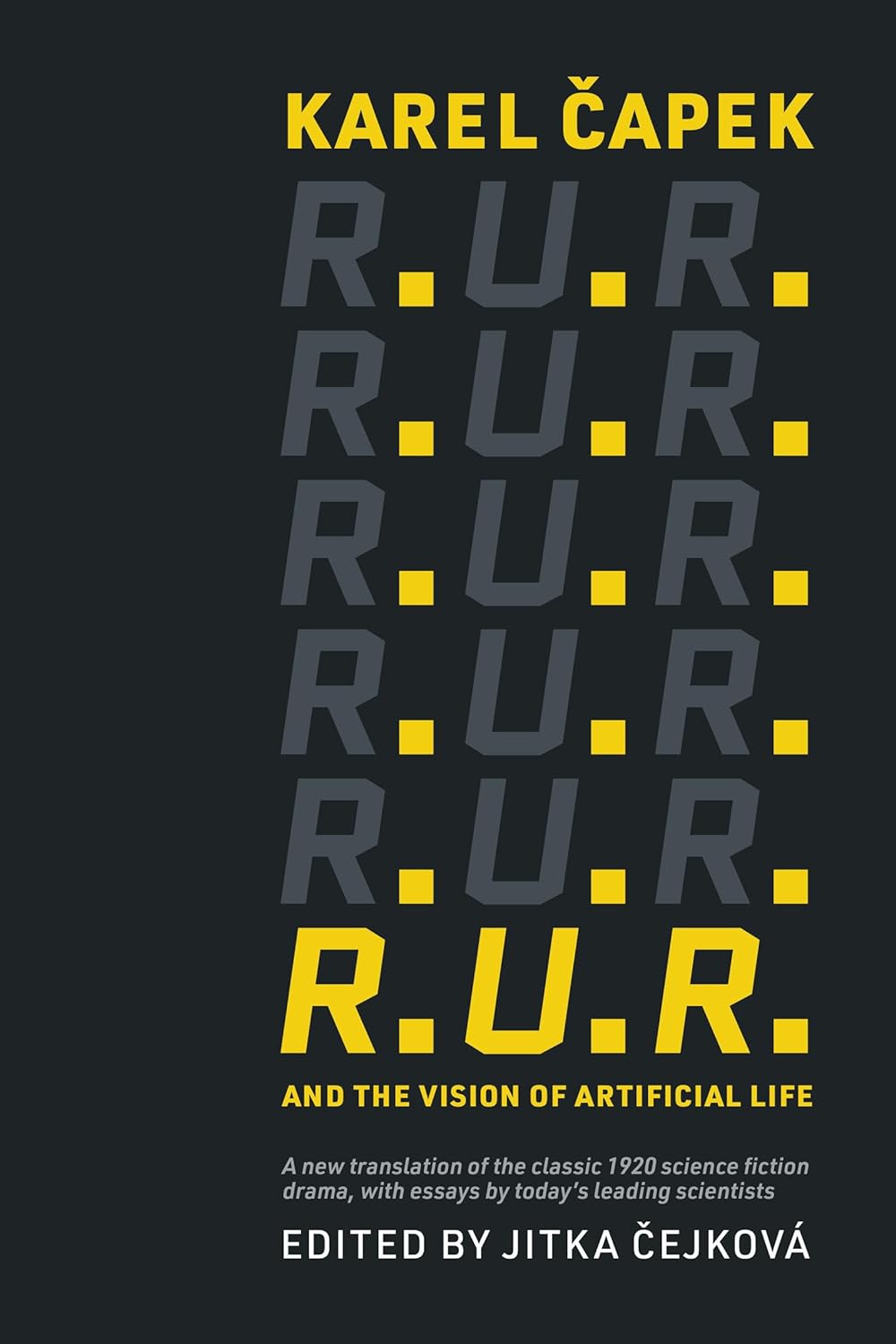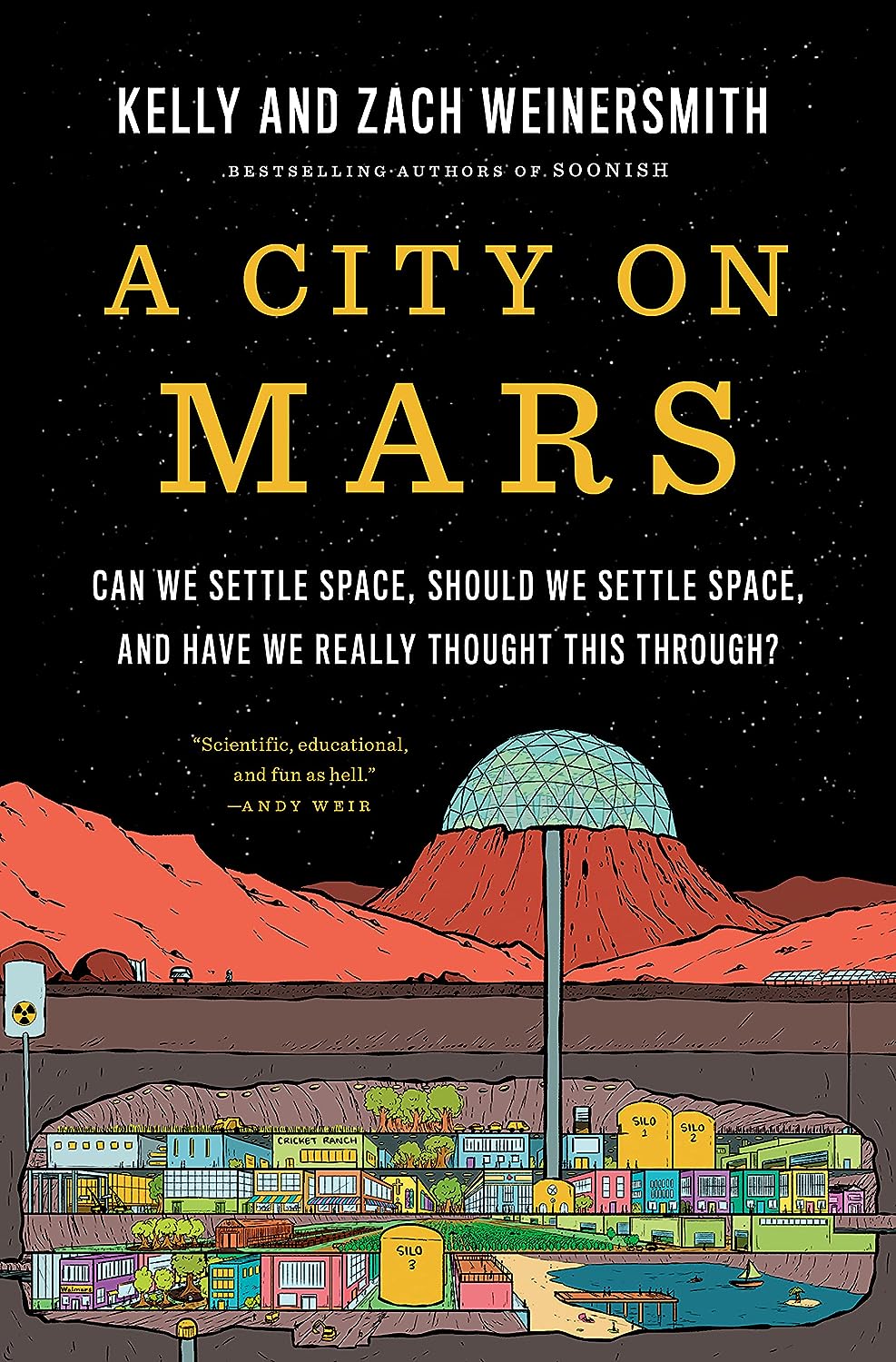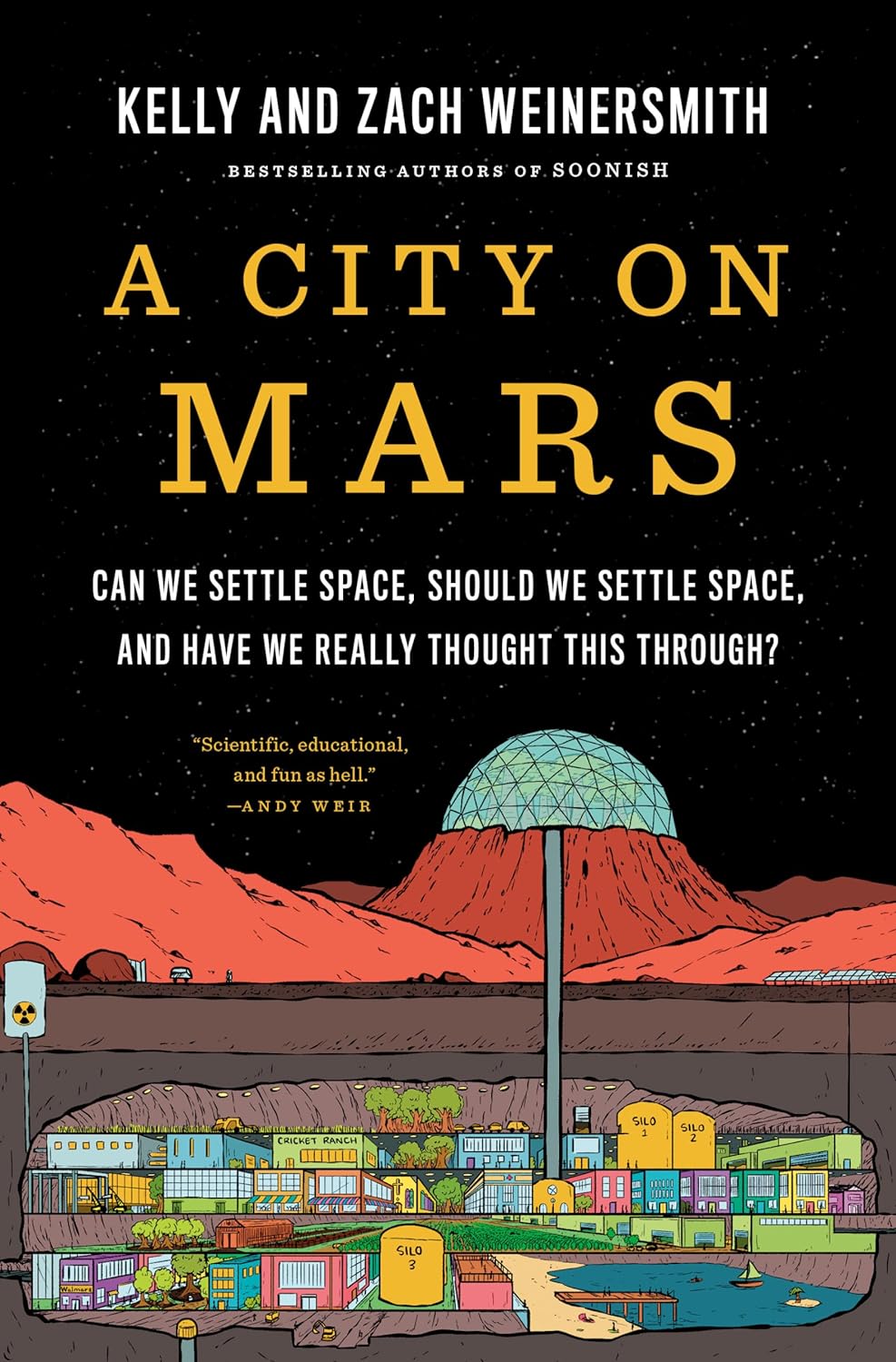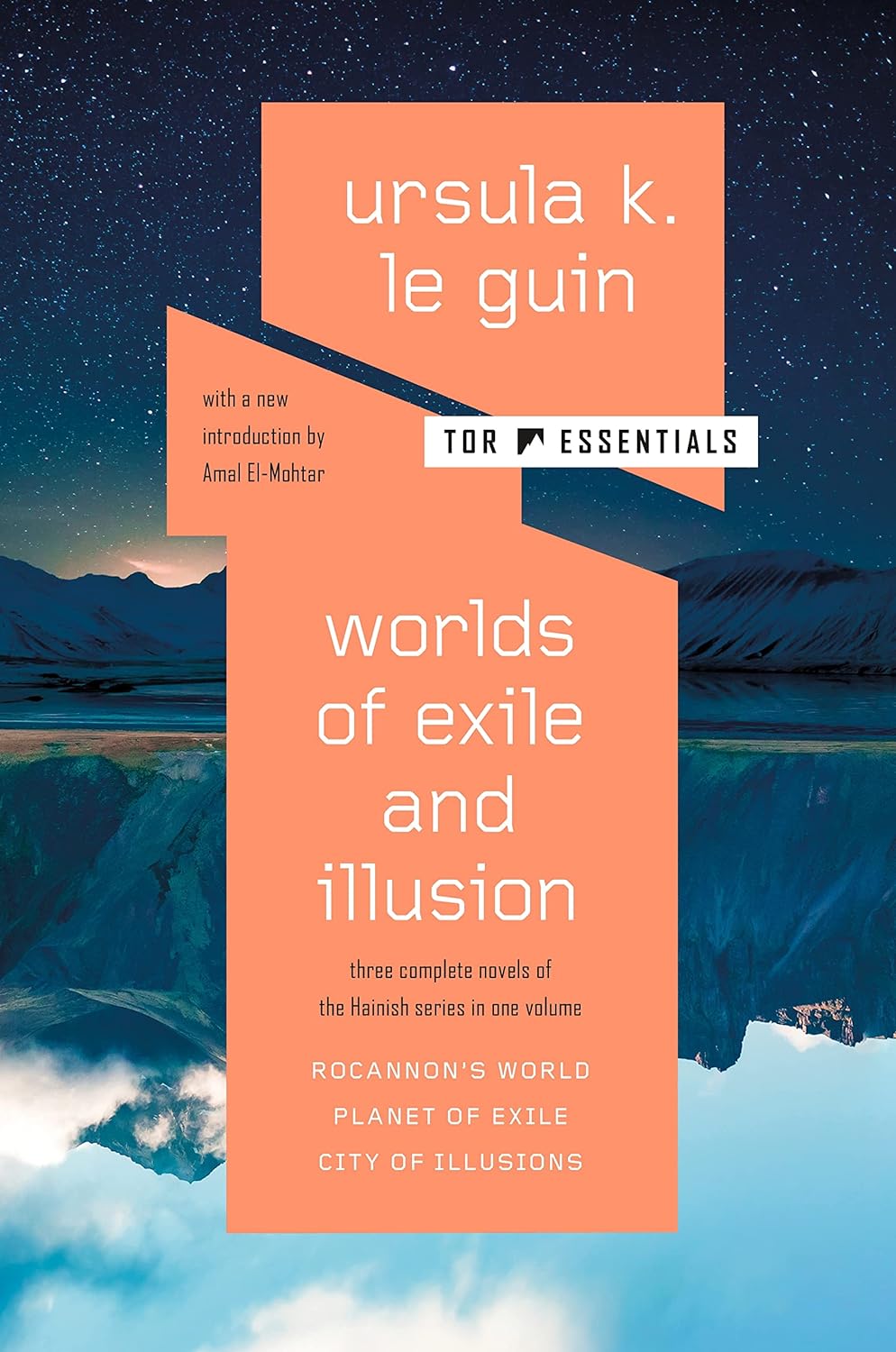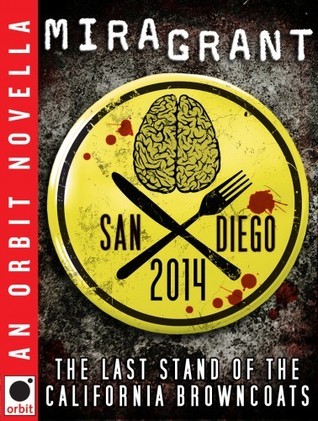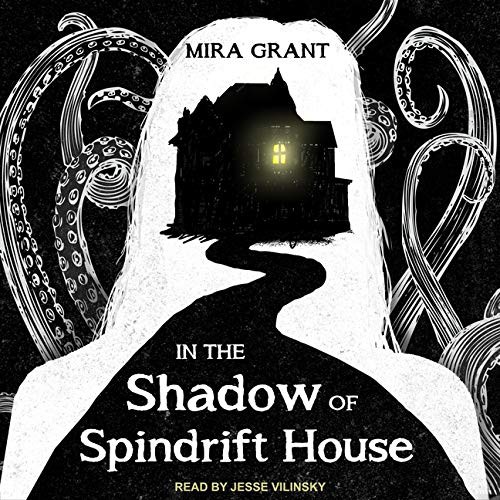I've got to get back to this and finish the last couple of sections. I'm just in the middle of too many books right now!
User Profile
Techie, software developer, hobbyist photographer, sci-fi/fantasy and comics fan in the Los Angeles area. He/him.
Mostly reading science fiction these days, mixing in some fantasy and some non-fiction (mostly tech and science), occasionally other stuff. As far as books go, anyway. (I read more random articles than I probably should.)
Reviews are cross-posted on my website and I have a blog dedicated to Les Misérables.
Fediverse Main: @kelson@notes.kvibber.com (GoToSocial) Websites: KVibber.com and Hyperborea.org
This link opens in a pop-up window
User Activity
Kelson Reads commented on A City on Mars by Zach Weinersmith
Phil in SF quoted A City On Mars by Zach Weinersmith
If a nation wants to convey to the world that they are the strongest and best, they can, of course just announce it at the United Nations. But it won't be convincing. Talk is cheap. Space programs are not. Very few nations can successfully fire a guy around the world at 7.8 kilometers per second, then land him and send him on a goodwill tour. Human spacefaring has little utility for the price, especially compared to things like military or commercial satellites, but what it does do is dramatically demonstrate wealth, organization, and technical competence. Throw in the fact that early space rockets were often literally the same as military rockets, and you have an excellent show of raw power that demands to be taken seriously. You of course never hear a politician say, "we choose to go to the moon, not because it is easy, but because it'll provide short-term geopolitical advantage," but something like that is a pretty solid explanation.
Kelson Reads <p>wants to read</p>
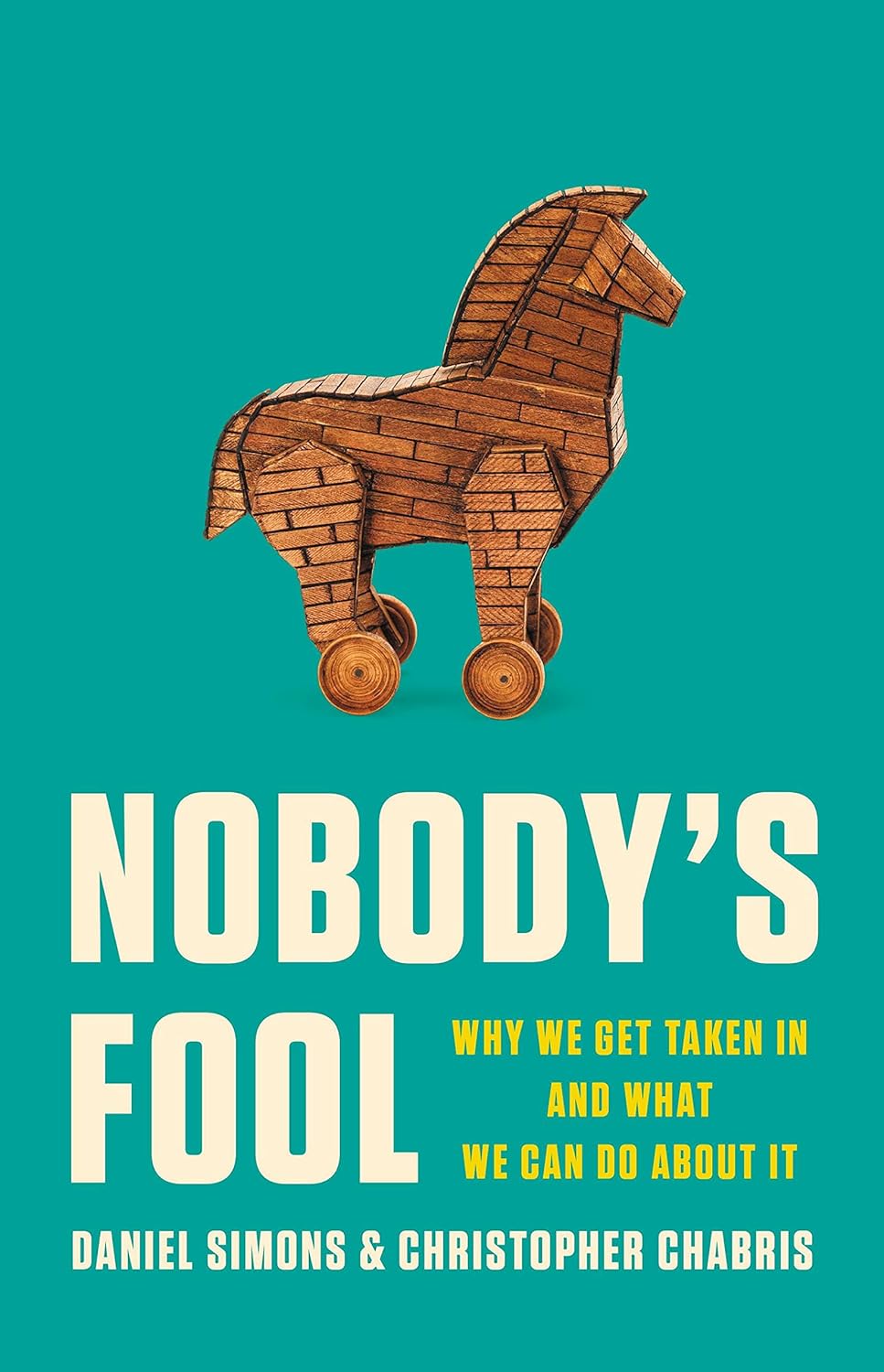
Nobody's Fool by Daniel Simons, Christopher Chabris
From phishing scams to Ponzi schemes, fraudulent science to fake art, chess cheaters to crypto hucksters, and marketers to magicians, …
Kelson Reads reviewed Minor Mage by T. Kingfisher
By turns melancholy and creepy, with a dash of sarcastic armadillo
No rating
Minor Mage is firmly in the "kid goes on scary quest and comes back stronger" genre. The 12-year-old protagonist is cast out to complete a nigh-impossible quest alone (aside from his armadillo familiar), facing ghouls and starvation and bandits and ghosts and murderers. He's a wizard, yes, but he's barely half-trained and only knows a handful of spells (though his herbal lore is pretty strong). Like the young heroes of A Wizard's Guide to Defensive Baking and Illuminations, he has to learn how to make the most of his limited abilities in order to survive -- only this story takes place not in a city but mostly in wilderness an abandoned farmlands.
From an adult perspective, Oliver's constant lamenting that he's "only a minor mage" starts to grate after a while. But that's not the perspective it's written for: it's a kids' book, and operates on kids' fantasy logic. …
Minor Mage is firmly in the "kid goes on scary quest and comes back stronger" genre. The 12-year-old protagonist is cast out to complete a nigh-impossible quest alone (aside from his armadillo familiar), facing ghouls and starvation and bandits and ghosts and murderers. He's a wizard, yes, but he's barely half-trained and only knows a handful of spells (though his herbal lore is pretty strong). Like the young heroes of A Wizard's Guide to Defensive Baking and Illuminations, he has to learn how to make the most of his limited abilities in order to survive -- only this story takes place not in a city but mostly in wilderness an abandoned farmlands.
From an adult perspective, Oliver's constant lamenting that he's "only a minor mage" starts to grate after a while. But that's not the perspective it's written for: it's a kids' book, and operates on kids' fantasy logic.
Speaking of the target audience: In the afterward, Kingfisher/Vernon talks about trying to convince editors that yes, this is a children's book, and getting constant pushback that it's "too scary." (This is how she ended up publishing it as Kingfisher rather than Vernon) It reminded me of similar comments Neil Gaiman wrote about Coraline, remarking that it was too scary for adults but not too scary for children.
Sometimes I wonder: Do these editors remember being 12?
Kelson Reads <p>finished reading</p>
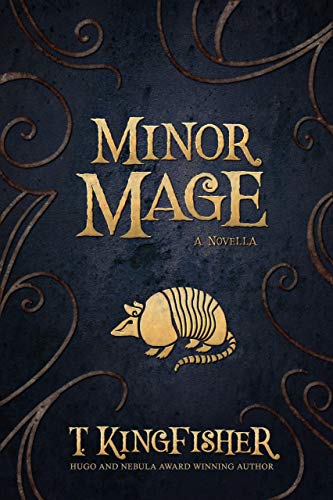
Minor Mage by T. Kingfisher
Oliver was a very minor mage. His familiar reminded him of this several times a day.
He only knew three …
Kelson Reads <p>finished reading</p>
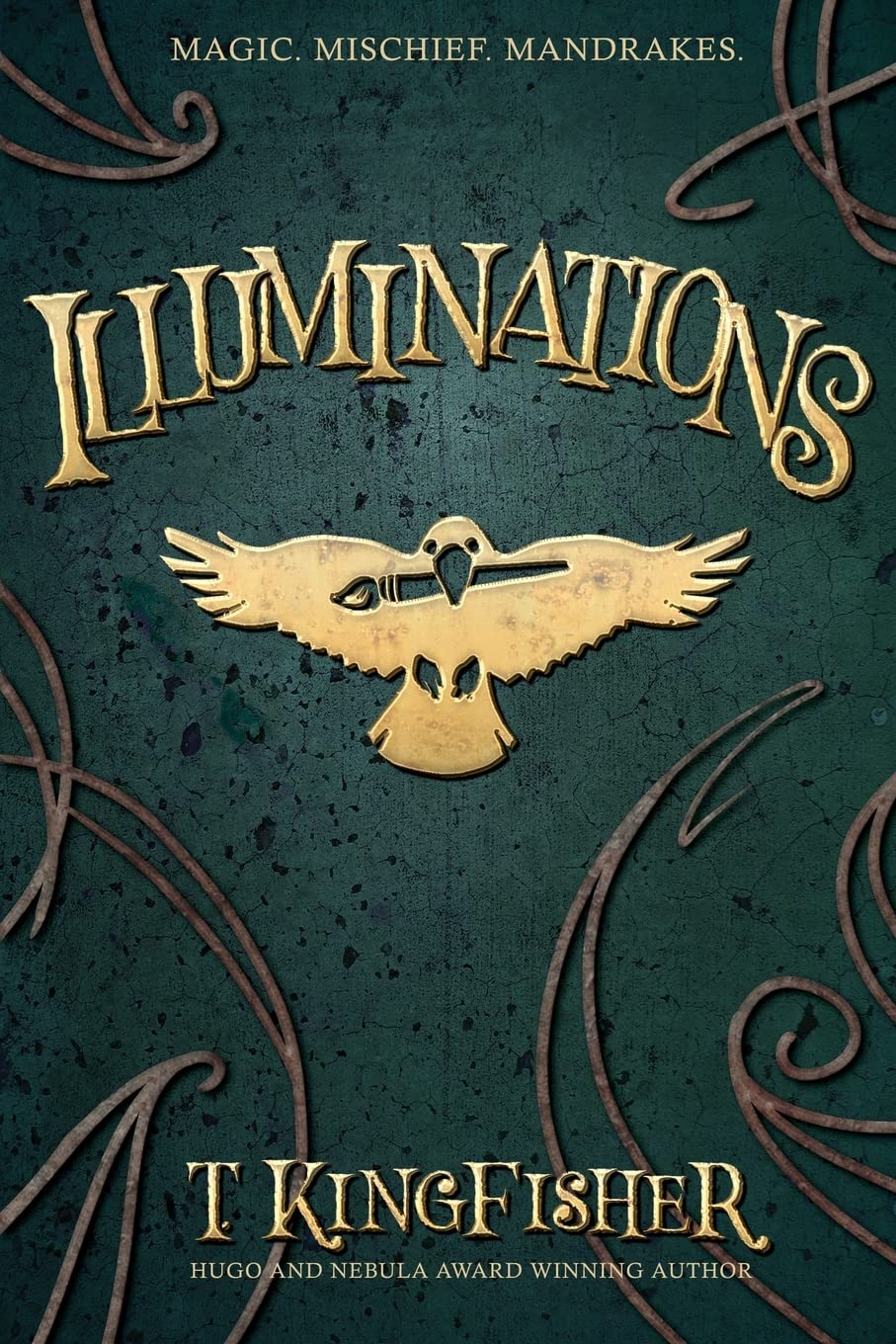
Illuminations by .
Kelson Reads <p>finished reading</p>
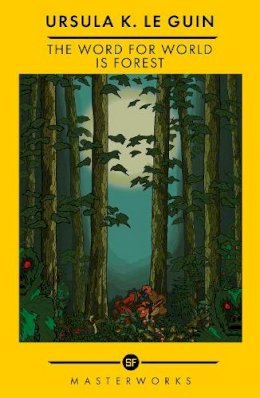
The Word for World Is Forest by Ursula K. Le Guin
When a world of peaceful aliens is conquered by bloodthirsty yumens, their existence is irrevocably altered. Forced into servitude, the …
Interesting to see Le Guin as she's developing her craft.
4 stars
This collection of three early novels in Le Guin's Hainish series initially looks haphazard, as if they were only collected because of writing order and not being as well-known as her later works.
- Rocannon's World is a serviceable fantasy quest wrapped in sci-fi trappings.
- Planet of Exile is a tighter story of isolation and people forced together by an invasion.
- City of Illusions involves a stranger seeking his identity in a post-apocalyptic Earth controlled by unseen alien masters.
But common threads tie them together. Not just her frequent themes like culture clashes, critiquing colonization, challenging racial stereotypes (both in-world and real), and just getting people to communicate. The second and third novels form a thematic duology:
- A single city of Earth colonists struggles to survive and adapt to a primitive world.
- A single city of alien colonists controls a primitive Earth they've adapted to their own desires.
And you can …
This collection of three early novels in Le Guin's Hainish series initially looks haphazard, as if they were only collected because of writing order and not being as well-known as her later works.
- Rocannon's World is a serviceable fantasy quest wrapped in sci-fi trappings.
- Planet of Exile is a tighter story of isolation and people forced together by an invasion.
- City of Illusions involves a stranger seeking his identity in a post-apocalyptic Earth controlled by unseen alien masters.
But common threads tie them together. Not just her frequent themes like culture clashes, critiquing colonization, challenging racial stereotypes (both in-world and real), and just getting people to communicate. The second and third novels form a thematic duology:
- A single city of Earth colonists struggles to survive and adapt to a primitive world.
- A single city of alien colonists controls a primitive Earth they've adapted to their own desires.
And you can watch her craft growing stronger over the course of the three novels.
I wouldn't recommend someone start reading Le Guin here, but I would recommend it to someone who's familiar with her work.
Kelson Reads <p>finished reading</p>
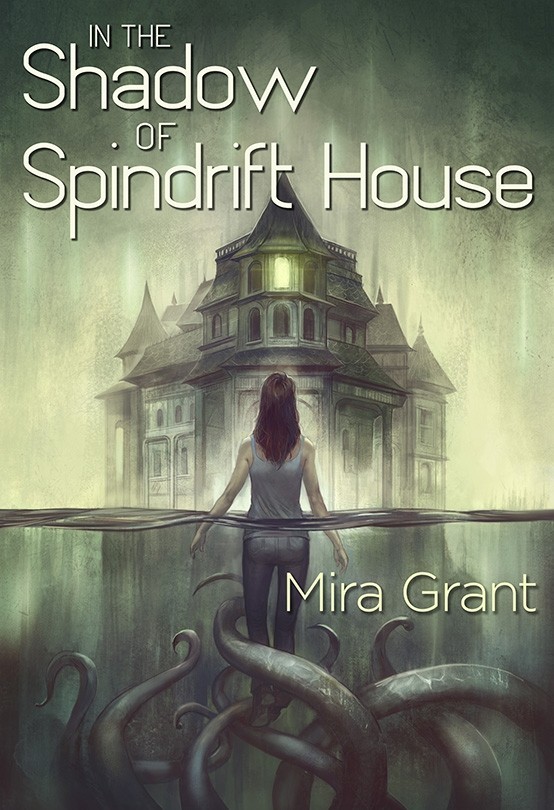
In the Shadow of Spindrift House by Mira Grant
Nature abhors a straight line. The natural world is a place of curves and softened edges, of gentle mists and …
Kelson Reads replied to Kelson Reads's status
It's an extended metaphor for school shootings, but years later, during the first year of the COVID-19 pandemic, schools reopened with children entering the campus one at a time after a health screening (temperature checks, not blood tests), sanitizing everything...and then I saw a picture of a classroom with individual transparent barriers around each desk.
At least Covid doesn't turn its victims into mindless killing machines.
Kelson Reads finished reading San Diego 2014 by Mira Grant
Yes, I read this on the train and later in line for a panel at Comic-Con the year it was released.
That made it a bit weird when I stumbled on the California Browncoats' booth.
Plus I kept looking around for exits wherever I went the next day...
Kelson Reads <p>started reading</p>

In the Shadow of Spindrift House by Mira Grant
Nature abhors a straight line. The natural world is a place of curves and softened edges, of gentle mists and …
